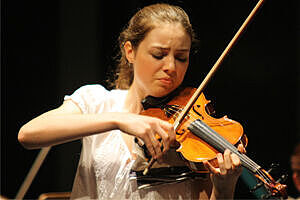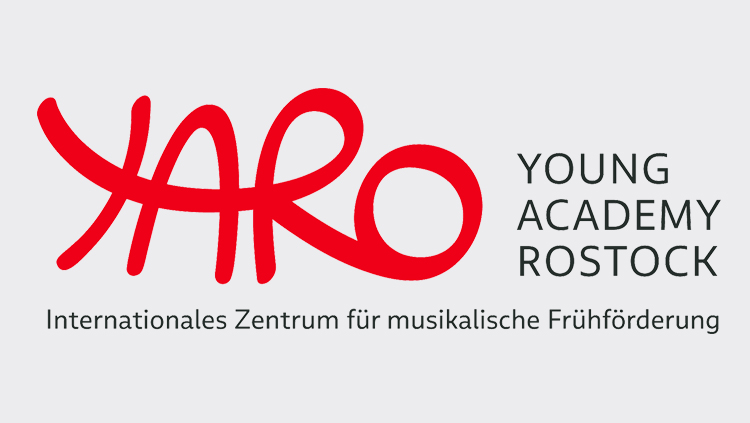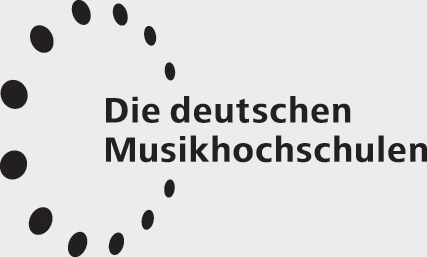Master's degree in music theory (including profile)
Programme details
Majors in Music Theory and Ear Training are connected with Music Analysis. Each student also chooses a profile: Musicology, Composition, Electronic Music and many more profiles are possible.
The acquired degree Master of Music enables its holder to apply for a PhD degree course admission at hmt Rostock.
Course Profile
- Official Length of the programme: two years, 120 ECTS-credits
- Start of the course: winter semester as well as summer semester
- Application period: 1 October to 15 November for the summer semester. 1 March to 15 April for the winter semester.
- University Degree: Master of Music
- Teachers
- Curriculum
The Master’s programme in music theory provides the qualification to work as a teacher for Music Theory at universities in the fields of music theory, ear training, and repertoire analysis; the course’s emphasis is on composition techniques of the 20th and 21st century.
The study programme has been designed for Bachelor’s graduates (or equivalent degree) who stand out through artistic excellence in the field of music theory and wish to add a profile to their major.
Foreign students whose native language is not German must provide evidence that their knowledge of German is sufficient for their chosen course.
For the Master’s degree (Music Theory), students are required to have reached level C1 as defined by the Common European Framework of Reference for Languages.
Applicants’ linguistic competence will be established during the aptitude test.
You will find further information in the Aptitude Test Regulations and Matriculation Regulations (only in German) of Rostock University of Music and Drama.
Please apply via our application website by uploading the required documents and application video by 15th of April for the next winter semester and 15th of November for the next summer semester. You can also choose one of the profile modules offered there (please see part 4 down below).
Study applicants for the master's degree course in Music Theory must complete the following examination components:
Examination Part 1
A selection of previous student assignments or representative exercises must be submitted with the application (e.g. modal composition, pastiche composition, compositions, analyses, academic coursework, instrumentations/orchestrations etc.). Number of documents: min 3, max 7
The applicant will only be invited to the second part of the examination if s/he has passed part 1 of the examination.
Examination Part 2:
a 45-minute oral and practical examination with the following contents:
Keyboard Skills
a) play a figured bass
b) score-reading (various excerpts of musical scores)
c) Advanced spontaneous tasks (e.g. sequence models, modulation, stylistic improvisation etc.)
Major Ear Training
d) identifying and singing intervals and chords
e) Sight-singing (tonal and atonal)
f) Speaking/tapping rhythm on sight
g) Identifying a chord progression/cadence,
Aural Analysis
h) Aural analyses (two different epochs)
Major Music Theory
i) Short presentation (5 to max. 10 minutes) on a topic chosen by the applicant that is related to music theory
j) Spontaneous analysis of several excerpts from musical scores,
k) Discussion about topics related to music theory
The applicant will only be invited to part 3 of the examination if s/he has passed part 2 of the examination.
Examination Part 3:
Major Music Theory
three-hour written examination with the following contents:
Tasks from the areas related to compositional technique and analysis, including counterpoint techniques of the Renaissance and Baroque periods, homophonic compositional techniques and music of the 20th and 21st centuries
Major Ear Training
90-minute written examination with the following contents:
one-part to four-part dictations (homophonic and polyphonic) also using audio media.
Examination Part 4:
Profile Module
Additional documents or videos may need to be submitted for admission to the desired profile module. You will receive all information about this with the invitation to the in-person examination.
- Composition: Contemporary compositions (2 to 3 scores, new music)
- Musicology: 1 to 2 academic term papers or essays demonstrating the ability to work scientifically
- Electronic music: 2 to 3 electronic compositions (new music)
- Pedagogy: letter of motivation (1 Din A4 page)
- Elementary Music Pedagogy: Letter of motivation
- Instrument/vocal: 2 to 3 works of different epochs or styles (max. 10 minutes video upload in total)
- Conducting (choral or orchestral conducting): Either letter of motivation and upload conducting of a work of free choice (max. 10 minutes) or letter of motivation and conducting of a work of free choice (max. 10 minutes) on site
- Theory-accompanying piano practice: Is also examined within the framework of the main subject examination, a performance with higher demands is expected.
Foreign students have to pass a German proficiency test.
We look forward to receiving your application!
Application
Click here for the ONLINE APPLICATION and the dates of the APTITUDE TEST.
A fee of 50 Euro is charged for processing your application for admission. Please transfer this amount when you submit your application.
We will gladly advise you personally!
Mrs Dörtje Peters
Study Office for Music
fon +49 381 5108 220
fax +49 381 5108 201
doertje.peters@hmt-rostock.de
Prof. Dr. Benjamin Lang, Head of Music Theory
benjamin.langhmt-rostockde
Please visit our University Information Day in April!
Back to DEGREE COURSES







